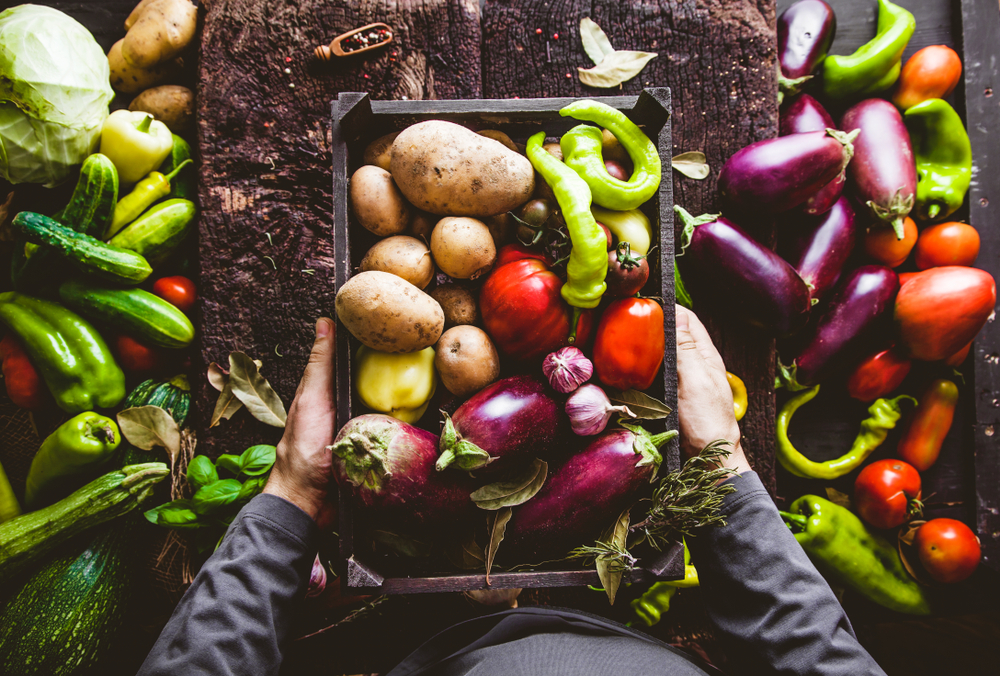From Legal Rights to Local Bites
This project explores urban food security as a human rights and human security issue, using participatory research with NGOs, municipalities, and communities in The Hague and Warsaw.
Centre of Expertise Global and Inclusive Learning

This research project explores food security in urban areas through the lens of human rights and human security. Focusing on community gardens in The Hague and Warsaw, it uses participatory action research to engage directly with residents, NGOs, and municipalities. Together, we examine how access to healthy, affordable food can be improved, what motivates people to engage with food gardens, and how such spaces strengthen community ties. The project fosters visibility, dialogue, and knowledge sharing to support more inclusive, just, and sustainable urban food systems.
“It’s great that this project exists because it shines a light on food insecurity in cities, something that’s often overlooked in developed countries. I love how gardening brings people together – not just with each other, but also with nature. It shows that food is about more than eating; it’s about care, dignity, and connection.” - Szilvia Csevár Project Leader
Background project
Urban areas in wealthy countries are often assumed to be food-secure, yet many people – especially in disadvantaged neighbourhoods – still face barriers to accessing nutritious food. At the same time, local initiatives such as community gardens show potential to address food insecurity and create positive social impact. This project investigates both the challenges and the motivations behind these initiatives in The Hague and Warsaw. We explore what drives people to get involved, and how these efforts contribute to human security and the right to food. The project also promotes greater visibility and collaboration across communities and sectors to amplify their impact.
Purpose
The key purpose of the project is to explore how community food gardens can strengthen urban food security, support the right to food, and foster inclusive, community-driven solutions in European cities.
Target group
The project targets residents in urban neighborhoods facing food insecurity, as well as local stakeholders including NGOs, municipalities, and educational institutions. It aims to engage these groups through participatory action research to better understand the motivations behind community gardening, identify barriers to access, and co-develop inclusive, sustainable solutions that improve food security and strengthen community resilience in The Hague and Warsaw.
Target to achieve
The project aims to generate new insights into how community food gardens can improve urban food security, support the right to food, and empower communities through active participation. By building partnerships between residents, NGOs, and municipalities, the project seeks to co-create knowledge, promote social inclusion, and contribute to more just and sustainable food systems in European cities, starting with The Hague and Warsaw.
Method
The project uses Participatory Action Research (PAR) as its core methodology, involving community members, students, NGOs, and municipal actors as co-researchers. Through collaborative workshops, interviews, and local engagement, participants explore food security challenges, motivations for gardening, and opportunities for inclusive solutions. PAR enables ongoing reflection and knowledge co-creation, fostering mutual learning and real-world impact while grounding the research in lived experiences and community needs.
Results
The project will generate practical insights into how community food gardens can help address urban food insecurity and support the right to food. It contributes to advancing knowledge on human and food security, and socio-legal aspects of the right to food in urban European contexts, while exploring motivations behind community participation and environmentally responsible behaviour. It will also contribute to curriculum development by integrating findings into education on human rights, sustainability, and participatory research. Outcomes include co-created communication tools, workshop formats, and policy input. The project also strengthens international collaboration and deepens student learning through participatory research grounded in real-world, community-based engagement.
Impact
The project is expected to create social impact by supporting fairer access to healthy food, strengthening community ties, and empowering residents to take part in shaping local food systems. It promotes awareness of food as a human right and encourages environmentally responsible behaviour. The research contributes to education by involving students directly in applied, participatory research and by feeding results into courses on human rights, sustainability, and inclusion. It also fosters collaboration between academia, civil society, and local government, helping to build more connected, resilient, and inclusive urban communities in The Hague, Warsaw, and beyond.
Start and end date
This initial phase of the project runs throughout the year 2025.
Funding
This project is funded by PGO funds.
Collaboration
International collaboration with the Maria Grzegorzewska University (MGU) in Warsaw, Poland.
Partners in The Hague:
- Loket Stadslandbouw, gemeente Den Haag
- Ons Eten
- Boerendorp
- United Rising
- De gezonde super
Team
Which lecturers and researchers make up the team?
- Project leader in Warsaw: Dr. Ewa Duda
Team in The Hague:
- Project leader: Szilvia Csevár (LAW/GIL)
- Student coordinator (LAW): Zsófia Rába
- Student researchers (LAW): Micol Battistella, Julia Kaźmierczak, Vlada Kolinko, Dominik Miklósi
Contact
Szilvia Csevár [email protected]